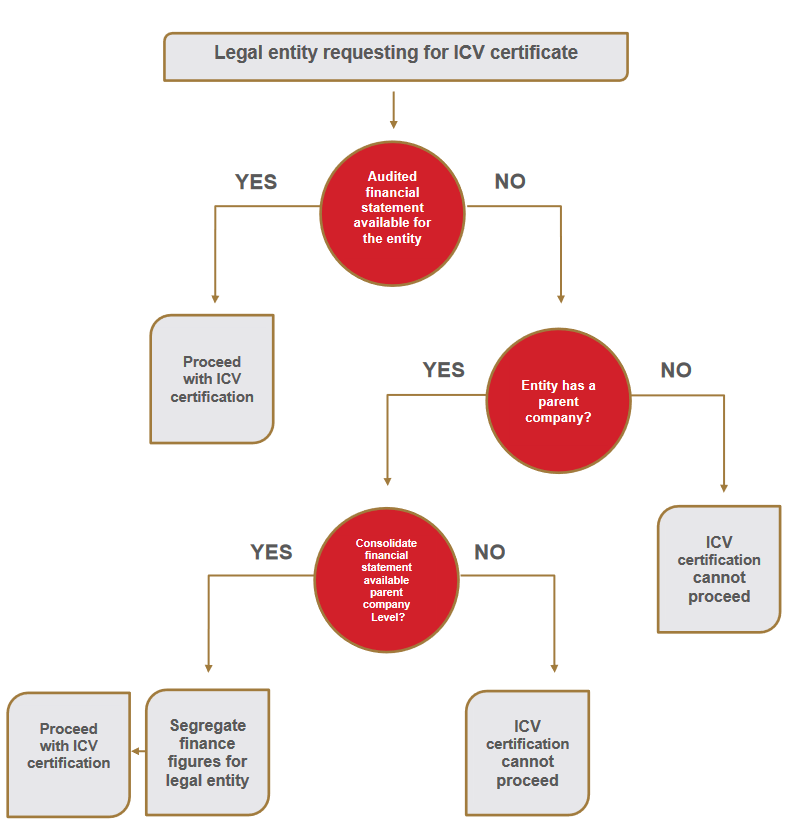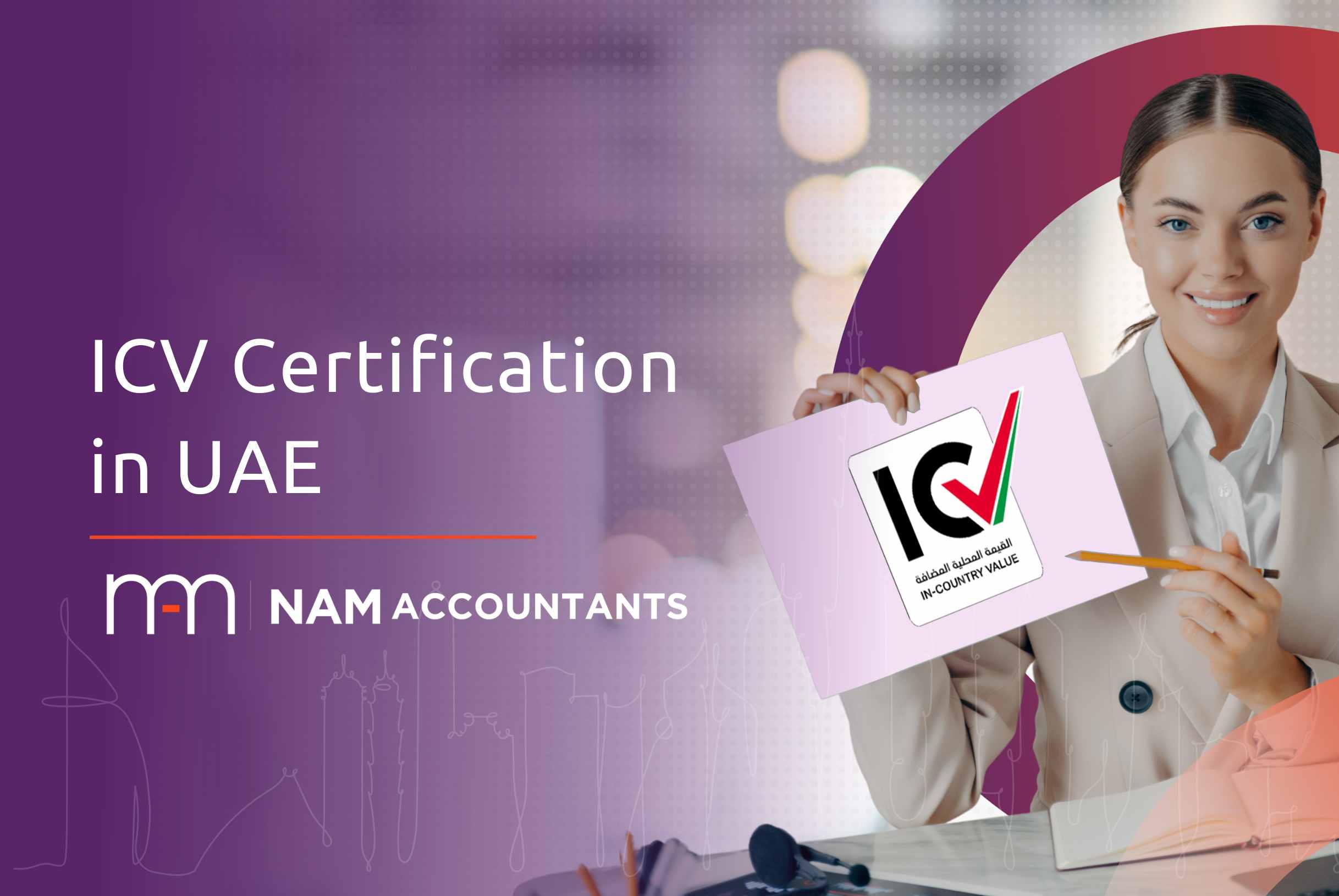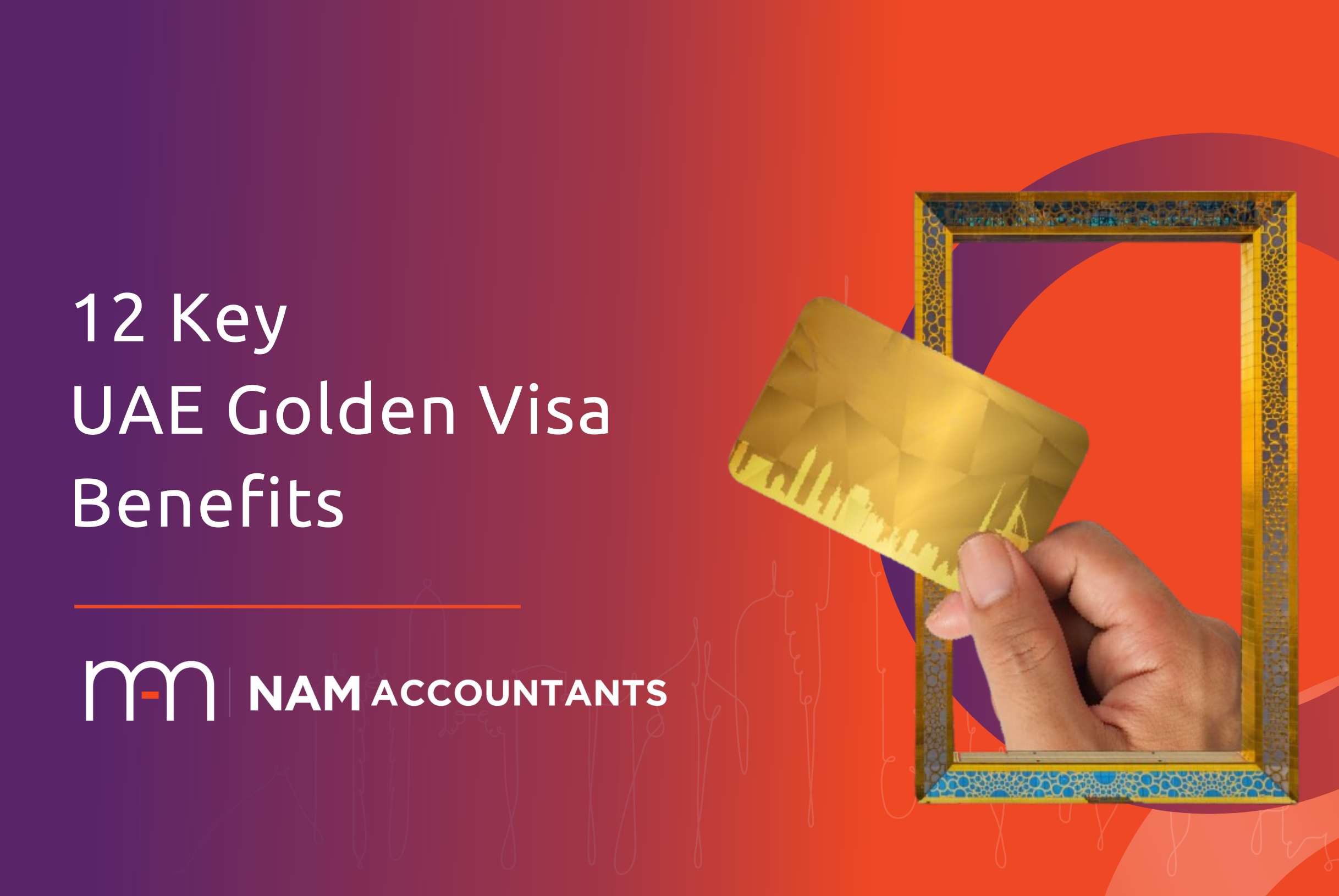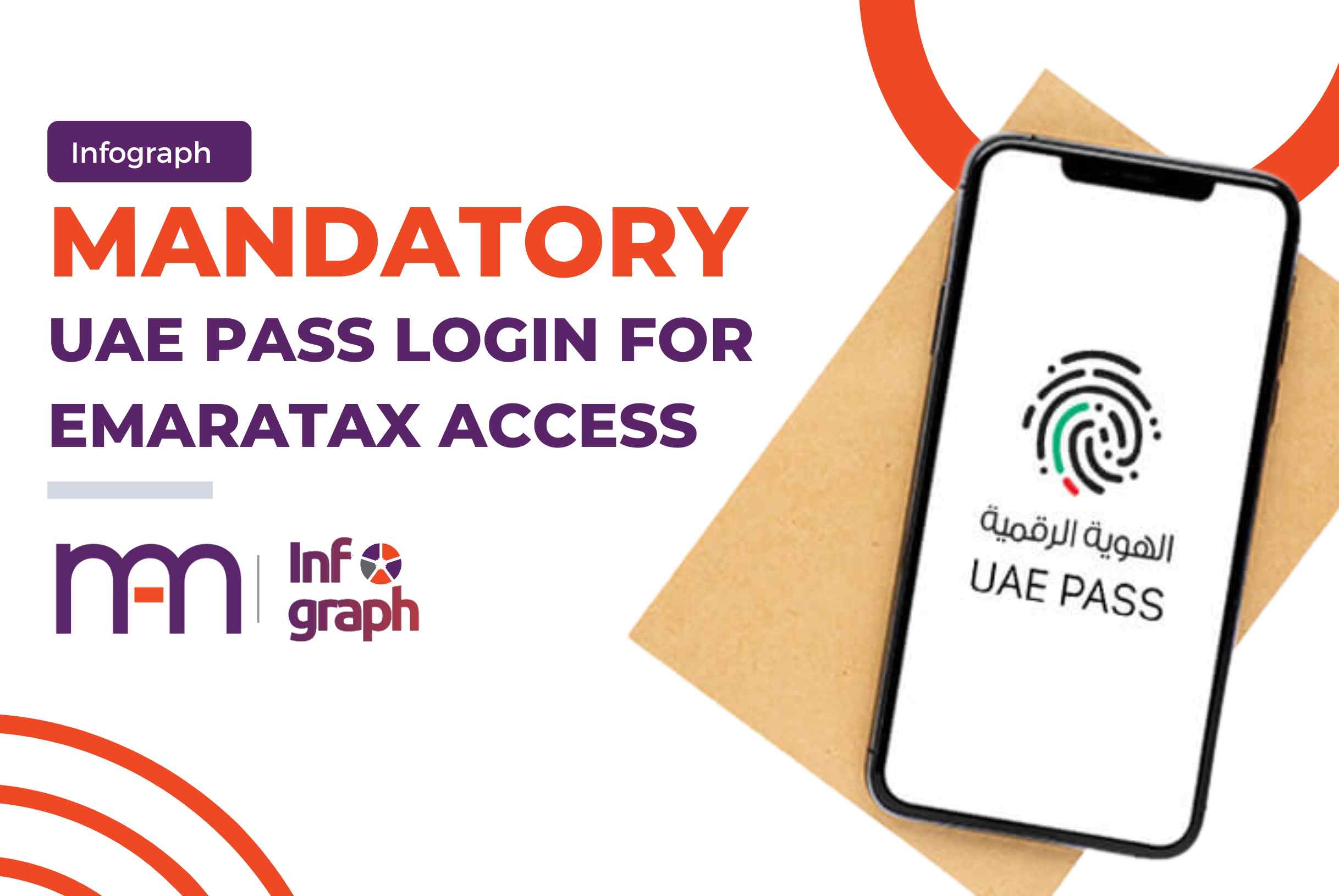ICV Certification in UAE has been implemented in Oman, Qatar, Saudi Arabia, and the United Arab Emirates. Since its initiation, the program has not only fostered growth in the national economy but has also positively impacted the economic development of both small and large organizations.
The In-Country Value certification, commonly referred to as the ICV certificate, was introduced in January 2018 by the Abu Dhabi National Oil Company (ADNOC), the national oil corporation. Effective from April 1, 2018, this initiative has proven beneficial not only for individual suppliers and businesses but also for the overall enhancement of the country’s economy.
The program actively encourages local suppliers to focus on obtaining the In-Country Value Certificate. In the United Arab Emirates, participating institutions are welcomed to join, aiming to localize their business activities and contribute to the promotion of national economic growth. The schedule for the national ICV certificate is managed by the Ministry of Industry and Advanced Technology (MoIAT), with the goal of optimizing the value of oil and gas in the UAE.
What is an ICV Certification in UAE?
The ICV Certification program, initiated by the Abu Dhabi National Oil Company (ADNOC) in the UAE, aims to evaluate the contributions of goods and services produced by businesses within the UAE, along with assessing local investment and employment, particularly in the oil and gas sector.
An ICV Certificate, issued by ADNOC in the UAE, serves as a formal document certifying the level of In-Country Value achieved by a company operating within the UAE.
In Abu Dhabi, the ICV Certification is closely tied to The Abu Dhabi Local Content Programme (ADLC), established by the Abu Dhabi Department of Economic Development (ADDED). The ADLC focuses on several key objectives:
- GDP Growth: Facilitating GDP growth by encouraging the domestic sourcing of products and services, expanding foreign direct investment in Abu Dhabi, and enhancing the GDP contributions of the private sector and SMEs.
- Human Capital Development: Improving Emiratis’ access to employment opportunities in the private sector and strengthening the competencies of the local labor force.
- Technology Adoption: Increasing research and development (R&D) expenditures, enhancing national industry competitiveness, and expediting technological advancement and application.
Through these initiatives, the ICV Certification program in Abu Dhabi and the ADLC contribute to the overall economic growth, human capital development, and technological advancement in the region.
What Business should get an ICV Certification?
ICV Certification is mandatory for all suppliers and contractors affiliated with the Abu Dhabi National Oil Company (ADNOC) and its subsidiaries. This requirement encompasses a diverse range of businesses, including those offering goods and services to ADNOC, such as drilling contractors, engineering firms, and logistics providers.
Moreover, the ICV Certification program extends its applicability beyond the oil and gas sector. Companies operating in various sectors seeking to engage in business with the UAE government, such as those participating in government contracts within industries like construction, transportation, and healthcare, may also be obligated to secure ICV Certification.
Benefits of ICV Certification in UAE
Since its inception, the ADNOC ICV program has played a pivotal role in facilitating employment for over 1,500 Emiratis in the private sector, contributing significantly to the UAE’s economy with an impressive Dh44 billion ($12 billion). Moreover, ICV certification has been successfully conferred upon more than 3,000 businesses across the UAE.
The ICV program meticulously assesses various factors, including investment, Emirati employment, funding from expatriates, income generated outside the UAE, and an upswing in overall investment. This initiative has given rise to a new business sector that demands supply from within the UAE.
ICV certification serves as a catalyst, encouraging heightened participation from the private sector, fostering diversification of the GDP, and localizing crucial components within the supply chain. Small and medium-sized business owners find valuable support in expanding and advancing their enterprises, thanks to the easily localized supply chains facilitated by ICV certification.
Holders of ICV certification gain advantageous opportunities, securing contracts from federal authorities and partnering with corporations. ADNOC, in its procurement processes, actively promotes local manufacturing units by favoring them or their local agents over foreign manufacturers during tender evaluations. This approach not only enhances the ICV score of suppliers but also brings personal benefits to them while contributing to the overall upliftment of the nation’s economy.
Eligibility to Obtain an ICV Certificate
To obtain ICV certification in the UAE, companies must fulfill specific eligibility criteria. Consider the following aspects to assess your eligibility for obtaining an ICV Certificate:
- Registration and Licensing:
- Businesses seeking ICV certification typically need to be registered with the relevant government agency.
- Possession of a current trade license is a prerequisite for eligibility.
- Physical Presence:
- Companies must be physically present in the UAE, actively engaged in either producing goods or providing services.
- Industry-Specific Requirements:
- Organizations must meet specific ICV requirements tailored to their industry sector, in addition to the general qualifications.
- Guidelines for Each Industry Sector:
- ICV program guidelines for each industry sector define standards businesses must meet for certification.
- Criteria may include the level of local content in products and services, investment in regional infrastructure, workforce Emiratization in sectors like oil and gas, among other factors.
- Independent Audit Process:
- Companies seeking ICV certification must undergo an independent audit conducted by an authorized ICV certification body.
- The certification body evaluates the company’s performance and grants accreditation based on the ICV score in alignment with ICV requirements.
- Commitment to Expansion and Improvement:
- Overall, ICV certification obligations are designed to ensure that certified businesses are dedicated to the growth and enhancement of the UAE and its local economy.
By meeting these requirements, businesses demonstrate their commitment to contributing positively to the UAE’s development and economic progress, making them eligible for ICV certification.
How to obtain ICV Certification in UAE?
To secure ICV Certification in the UAE, companies need to adhere to the financial criteria established by ADNOC and submit their ICV score. Compliance with the ICV criteria may necessitate operational adjustments, such as increasing local investments, sourcing more goods and services locally, and hiring and training more UAE nationals.
Engaging with ICV audit and certification services can expedite the process of obtaining ICV Certification in the UAE. The ICV Certification process involves the following steps:
- Release of Audited Financial Statements:
- Companies must disclose audited financial records, the initial requirement for ICV certification in the UAE. Newly formed companies, less than 10 months old, can use management accounts or adhere to International Financial Reporting Standards (IFRS).
- Utilizing IFRS, a universally accepted set of accounting standards, enhances financial reporting transparency and reliability, crucial for building trust and credibility with stakeholders.
- Completion of ICV Certification:
- The ICV score is determined using the ICV template, a standardized form designed to capture data on various aspects of a business’s operations. This includes local sourcing, investment in community amenities, and employment of Emiratis.
- Adherence to the ICV program’s instructions is essential when completing the ICV template.
- Form Evaluation:
- The third step involves approaching recognized certifying bodies for an assessment of the ICV template. Authorized certifying bodies, independent businesses permitted by the ICV program, assess and certify businesses for ICV compliance.
- Certifying organizations possess the necessary knowledge and tools to evaluate the ICV template and conduct an on-site audit to confirm the information provided.
- Receipt of ICV Certificate:
- The final step is obtaining the ICV certificate, issued by the certifying body after a thorough examination of the ICV template and supporting documentation. This is granted when the business complies with the program’s requirements.
ADNOC ICV certification reflects a business’s commitment to enhancing the local economy and provides advantages, such as special consideration in government tenders and deals. ADNOC ICV-approved auditors simplify the certification process, guiding businesses through each step efficiently.
Validity of ICV Certification
- ICV certification in the UAE typically holds a 14-month validity from the date of submitting audited financial documents or the issuance of new financial statements (whichever is earlier).
- To continue receiving ICV benefits after a year, businesses must renew their certification, involving the submission of revised financial statements and a fresh ICV template.
- Maintaining compliance with ICV criteria throughout the year is crucial to ensure that the ICV score meets renewal requirements. Strategies to improve the ICV score should be considered for ongoing compliance.
Key Consideration to obtain ICV Certification in UAE
If you are considering obtaining an ICV Certification, here are essential factors to focus on and enhance:
- International Financial Reporting Standards (IFRS) Compliance:
- Financial statements submitted for ICV must adhere to IFRS, the mandatory accounting standards in Dubai.
- Branches Eligibility for Single Certificate:
- Businesses with two or more branches under one ownership in the emirate are eligible for a single ICV Certification.
- Owner Salary Credits:
- Owner salaries are considered, provided they are registered under the Wage Protection System (WPS) and are limited to AED 120,000 per month for each owner.
- Internal Costs Exclusion:
- With the exception of depreciation costs, internal costs of a supplier are not included in the ICV calculations.
- Employee Headcount:
- The total number of employees will be accounted for throughout the year.
- Credit to Mainland Suppliers:
- Suppliers based in the Mainland UAE receive a 10% reward in their ICV Score.
- Payments to Governmental Authorities:
- Payments made by the supplier to governmental free zone authorities and organizations with licenses are counted as 100% ICV.
ADNOC Approved ICV Auditors in UAE
We are a respected accounting & auditing firm based in the UAE, specializing in providing a diverse range of financial and compliance services tailored to businesses of all sizes. As an authorized ICV auditor with ADNOC, we are well-equipped to offer comprehensive ICV Certification Services to companies operating within the UAE.
Our dedicated team of ICV Auditors collaborates closely with clients, ensuring meticulous measurement and accurate reflection of their compliance with the ICV criteria in their ICV score.

Conclusion:
The evolution of the ICV certification since its inception indicates a commitment to continuous growth. Currently in its third version in the UAE, the ICV program remains unaffected, with the CSR activities of corporations captured and displayed on ICV documentation, emphasizing a transparent corporate structure. This underscores the significance of long-term business relationships in the UAE that benefit both the nation and stakeholders.
The ICV certification extends beyond the realm of oil and gas, empowering companies with value ratings that quantify the nation’s benefits from their operations. The program actively promotes strategic considerations, GDP diversification, and Emiratization, contributing to broader economic and societal initiatives.























